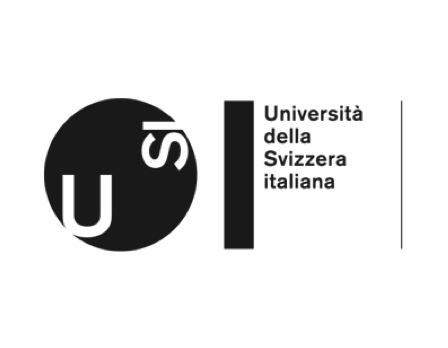What are the intertwined relationships between volatility, liquidity, price discovery, market design, and welfare? What challenges do insurance firms face in complying with new regulation, meeting shareholder expectations and managing large investment portfolios? How do you analyse risk premia in variance swaps? Is finance primarily extracting rents from the rest of the economy and creating too many distortions?
These are the in-depth and incisive questions the Institute of Finance at the Università della Svizzera Italiana (USI) in Lugano seeks to answer in its courses, inaugural lectures, journal articles, summer schools and international conferences. As a Master in Finance student here, you will have access to this and more.
With rigorous and relevant training, using a combination of theory and practice, you will receive a foundation in financial principles, tools and techniques. From financial markets to the use and structure of financial products, and the know-how to devise investment opportunities, it’s a course that incorporates the rapid changes in increasingly complex financial systems.
And it’s set to become even more so. The financial world, already in rapid globalisation and digitisation in 2020, is staring down the fallout of one of the worst pandemics ever.
According to the first joint risk assessment report by three European Supervisory Authorities, it sees “a risk of decoupling of financial market performance from the underlying economic activity, and a prolonged lower for longer interest rate environment which is expected to weigh on the profitability and solvency of financial institutions, as well as contributing to the build-up of valuation risks.” Experts are foreseeing significant challenges ahead, with economic recessions, increasing borrower defaults and ultra-low interest rates affecting the earnings outlook of banks and other financial intermediaries.
USI Master in Finance students stand to benefit from the deep insights and industry-relevant knowledge from internationally-renowned faculty members on topics such as the above and beyond. Graduate Kail Fiumara who now works as a Consultant for Corporate Clients at Credit Suisse says, “USI offers many advantages: the formation programme is excellent, the material quality is very good and it is possible to establish a good relationship with the professors, which is not common in most universities.”
There are three specialisations in this 18-month or 24-month programme taught entirely in English: Quantitative Finance, Banking and Finance and Digital Finance. Professor Alberto Plazzi, the recipient of the Credit Suisse Award for Best Teaching at USI in 2014, says: “The three new tracks within our master’s keep the course offering cutting edge and up-to-date to the pulse of the financial system. All this in a very dynamic university environment, with a student-teacher ratio among the lowest in Europe”.
In the Digital Finance track, learn about blockchain, machine learning and fintech startups. Keen to know how houses are priced and GDPs are predicted? The Quantitative Finance track will explore the modelling of financial variables and pricing of financial instruments across a broad range of assets. Want answers on how banks could give out easy credit to risky borrowers to buy homes they couldn’t afford and open fake accounts without their knowledge? The Banking and Finance track will help you understand investment principles, accounting, corporate finance, governance, and private wealth management.
Students can also choose to take on an optional internship or thesis if they opt for the two-year programme. This master’s is accredited by the Swiss Finance Institute (SFI), an initiative sponsored by the Swiss Bankers Association (SBA), with the purpose of achieving international excellence in banking and finance education and research at Swiss universities.
Another perk of studying at USI? Switzerland. The country is known as one of the most well-regulated, efficient, and supervised financial centres and economies. There are plenty of opportunities for finance professionals with international backgrounds to gain work experience due to the number of multinational companies in the country and a rapidly growing startup ecosystem.
Graduates from this Financial Times top-ranked programme can expect to advance in their careers, find employment within three months from graduation, and become internationally-employable. In short, they’re set for a rewarding career in finance.
Gain a quality interdisciplinary education where you can be fully engaged and develop your potential with a Master in Finance from USI. Find out more here.
Follow Università della Svizzera Italiana on Facebook, Twitter, Instagram and LinkedIn














